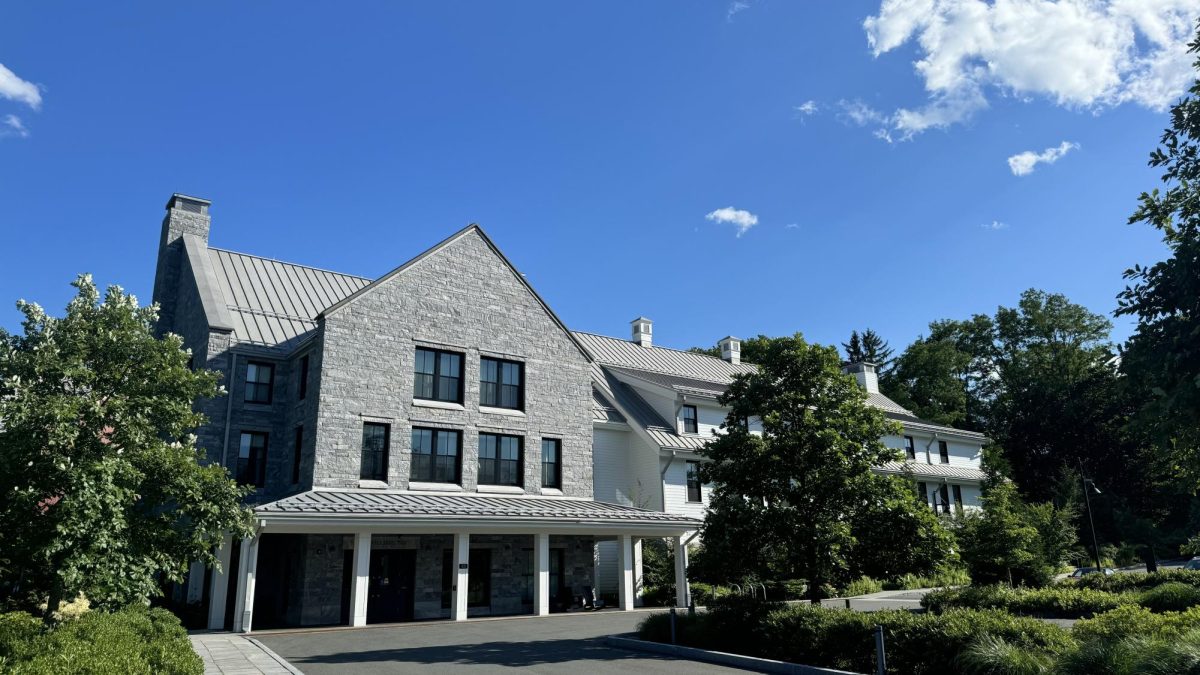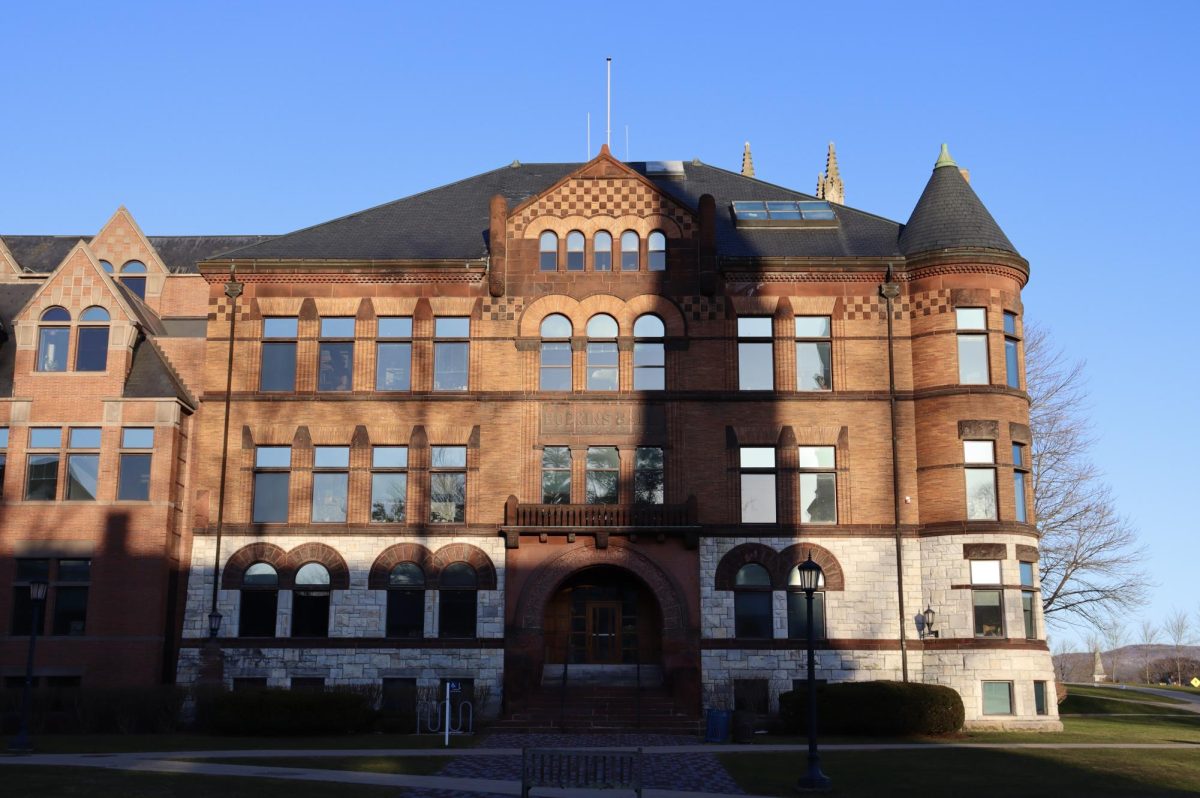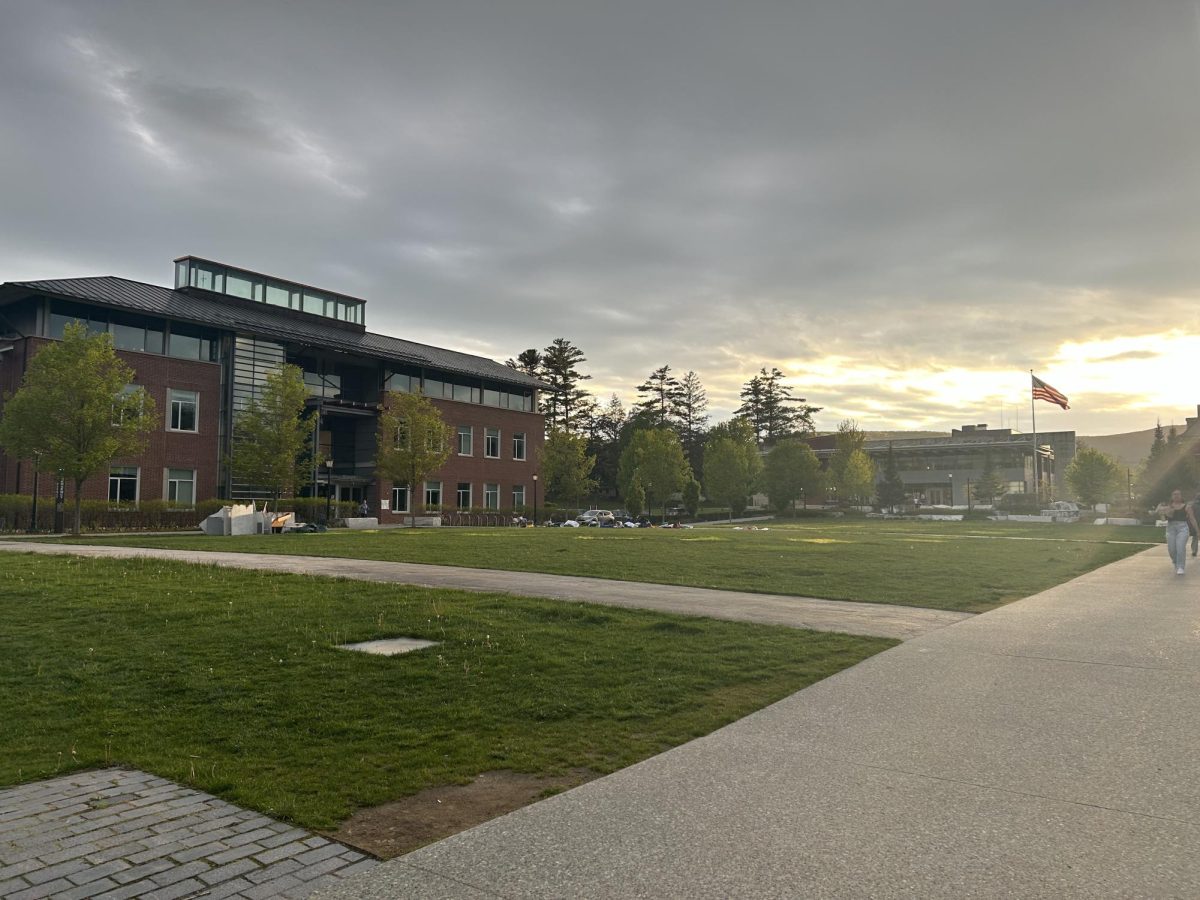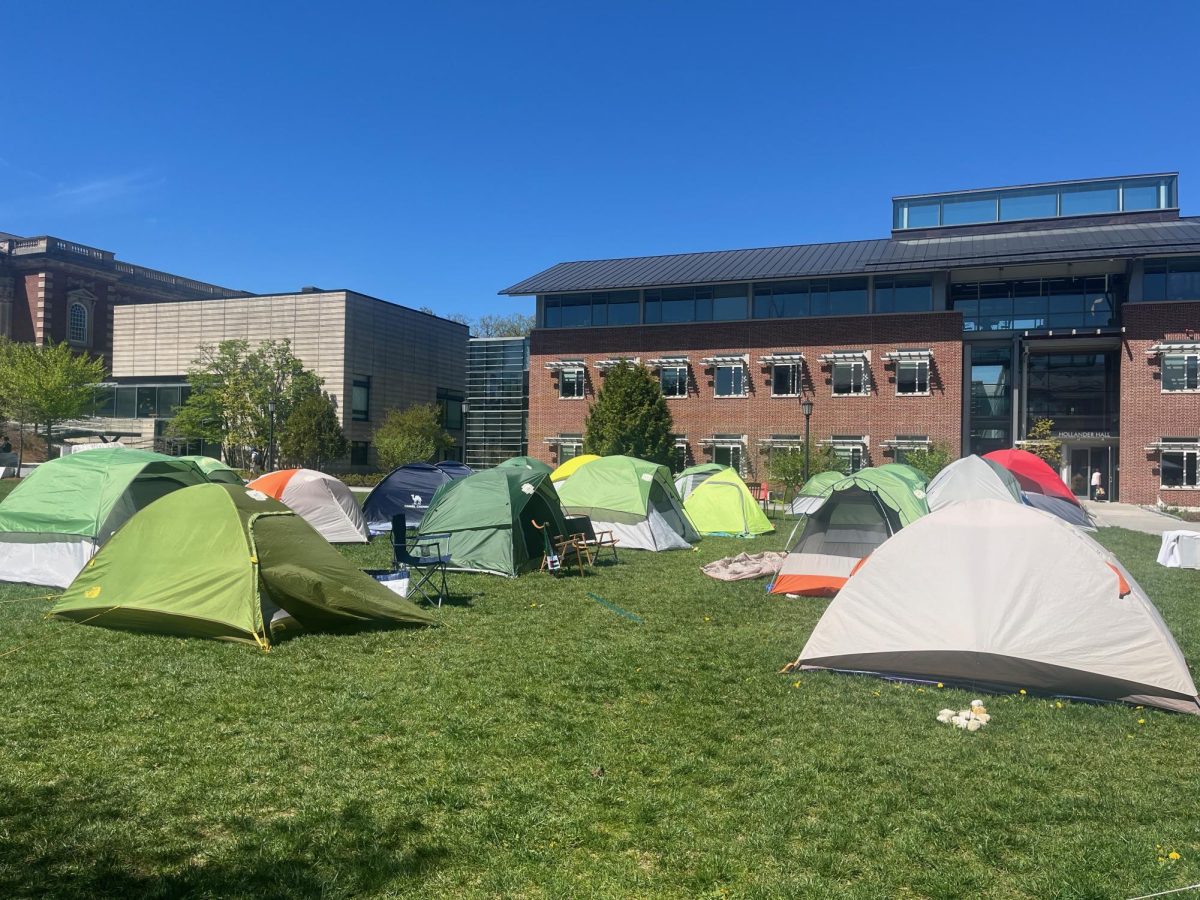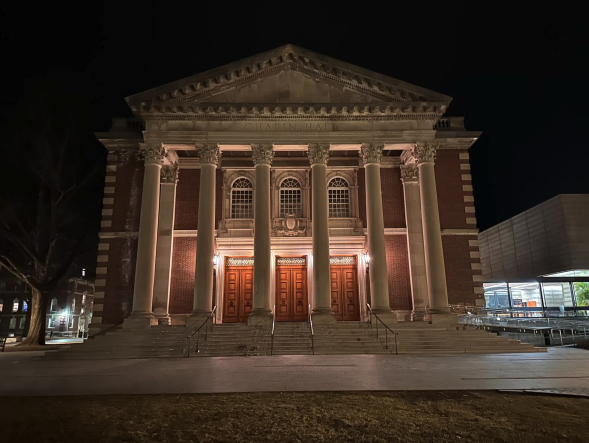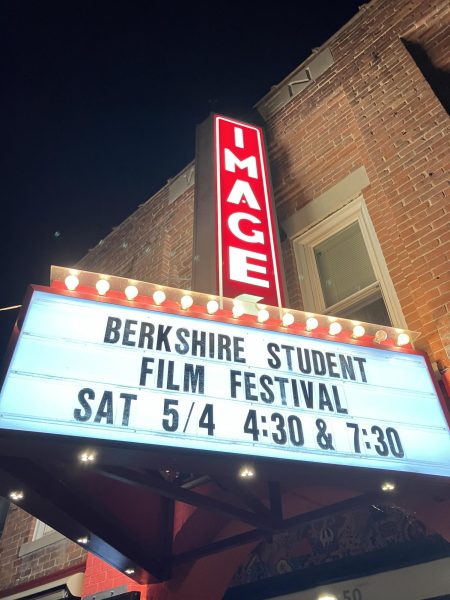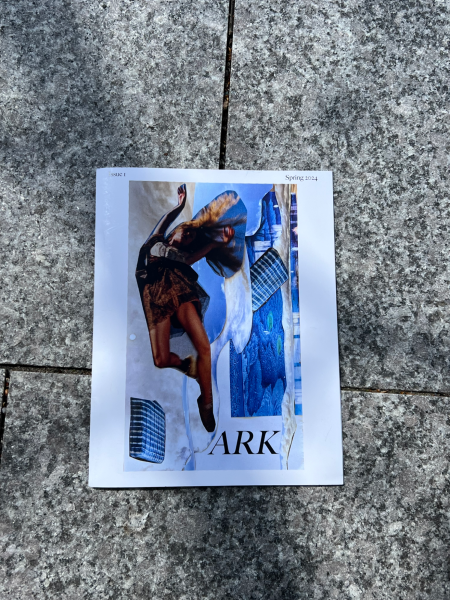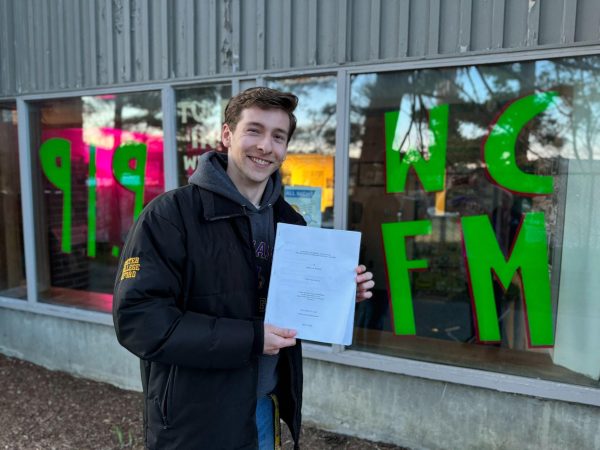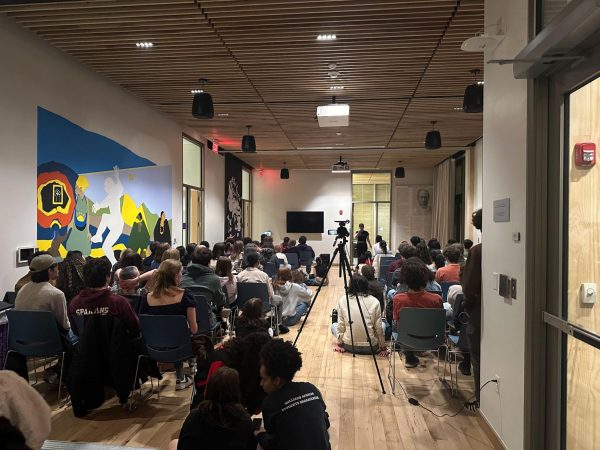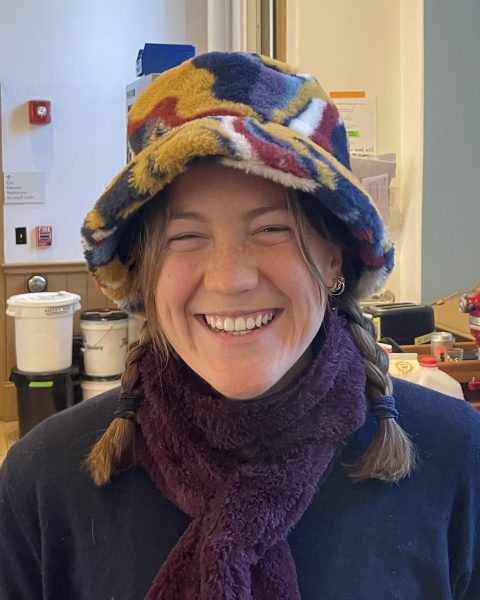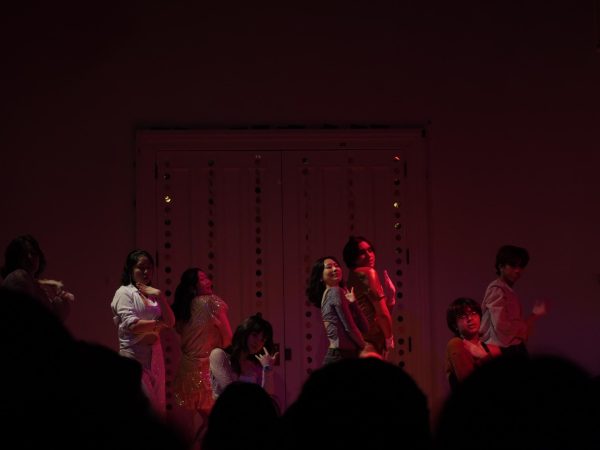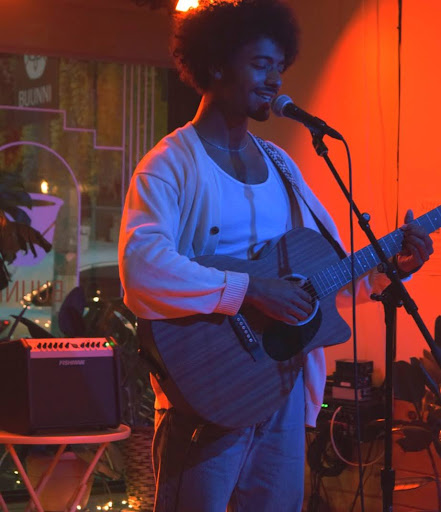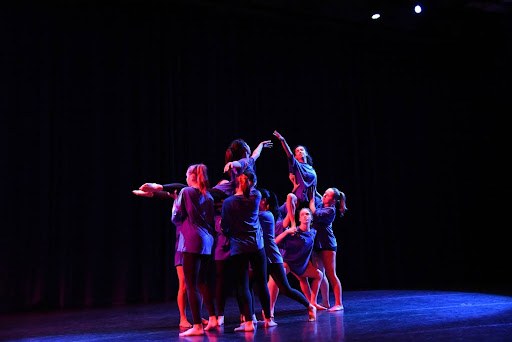Mikel Jollett gives talk on trauma, creativity
April 12, 2023
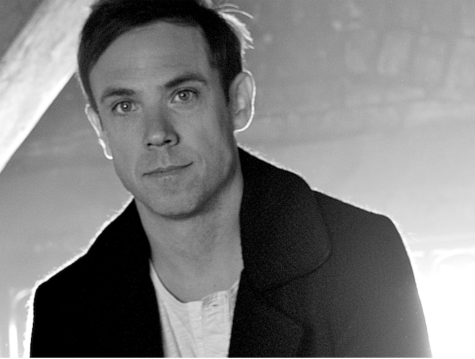
On April 4, musical artist and bestselling author Mikel Jollett gave a talk at the College entitled “Trauma and Creativity: How Your Experience Becomes Your Purpose.” The talk was the second in a series about mental health co-sponsored by the Class of ’71 Public Affairs Forum, the Lecture Committee, the psychology department, and the music department.
Jollett’s talk focused on the power of musical creativity in helping one process their childhood trauma. He began his talk by posing the question, “What is it about the nature of art, specifically music, which allows us to process that trauma and ultimately, hopefully, make something beautiful with it?”
Jollett first discussed the trauma he experienced growing up with his younger brother in a cult in an orphanage. “[The cult] was a rough place,” he said. “Kids were beaten, locked in closets, and ritualistically humiliated. Just about every kid was molested and had no possessions, no toys, no birthdays, no Christmas, no Hanukkah, no family dinners. It was always just the cult.”
He and his brother eventually escaped from the cult with their mother, who took them to live with her in California. “[Life after the cult] wasn’t much better,” Jollett said. “[The cult] was looking for us, so we lived on the run for a while and were always told to hide from ‘the bad men.’” Jollett explained that he and his brother were never allowed to play outside and spent years listening to children play on the street, hoping one day that they could play with them.
“This is called trauma,” Jollett continued. “It creates something inside of you inexpressible, an alienation from the world, and wounds that require language which does not yet exist.”
As a result of his trauma from his childhood, Jollett learned to perform for others as a coping mechanism later in his life. “I bet at least half of you can relate to the following thought: If I don’t show these people how special I am, I never will be,” he said. “We all have these finely tuned masks that we’ve created to show the world how well we’ve turned out.” This compelled Jollett to start working harder in school, and he eventually attended Stanford University to study psychology.
While at Stanford, Jollett was given an acoustic guitar and began writing music. “I would sit for hours and hours doing nothing but writing songs,” Jollett said. “It was a huge part of my life … I just wanted to know: How do you make one of these magic things called a song?”
Jollett said he sought to answer this question for years, working night after night on his music but feeling like he wasn’t getting anywhere. This all changed when he interviewed his musical hero David Bowie while working as a music journalist for Filter magazine. During the interview, Bowie adviced Jollett to write songs about the contradiction in his own mind, rather than trying to fix that contradiction through music. “That’s what I did,” Jollett explained. “I started writing songs, just trying to capture my own internal monologue, and for the first time, I started writing songs about how I actually felt inside.”
From there, Jollett created the indie band “The Airborne Toxic Event,” of which he is now the lead singer. It was the creative discovery of emotional songwriting that allowed Jollett to finally begin giving a voice to and processing his trauma. “These feelings, like lost children, sit alone in the dark, and these songs open the door, inviting these feelings out into the world,” Jollett said. “Suddenly the weight of the thing, the weight of the feeling we’ve been carrying around which prompted us to write the song in the first place, is lifted.”
Jollett closed his talk by encouraging students and faculty to shine light on their trauma in this way, whether through music or some other art form. “All of us have our own unique and create sorrows and traumas … the beautiful things you can create, because of the strange thing that you are, gives you unique strength and perspective,” he said. “You can crack inside of you. But it’s only because of that crack that you can see the beauty of the world.”


